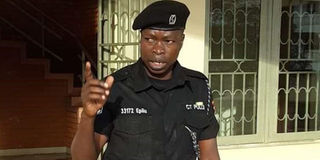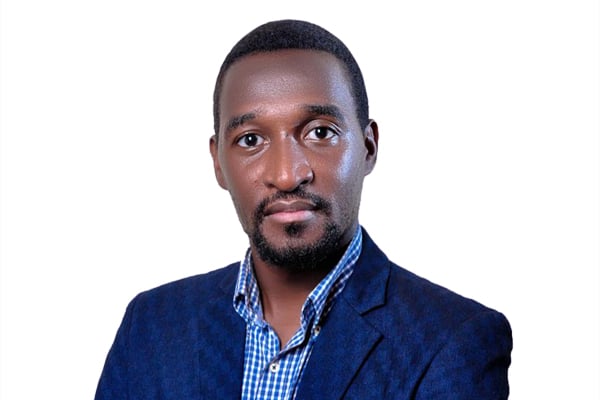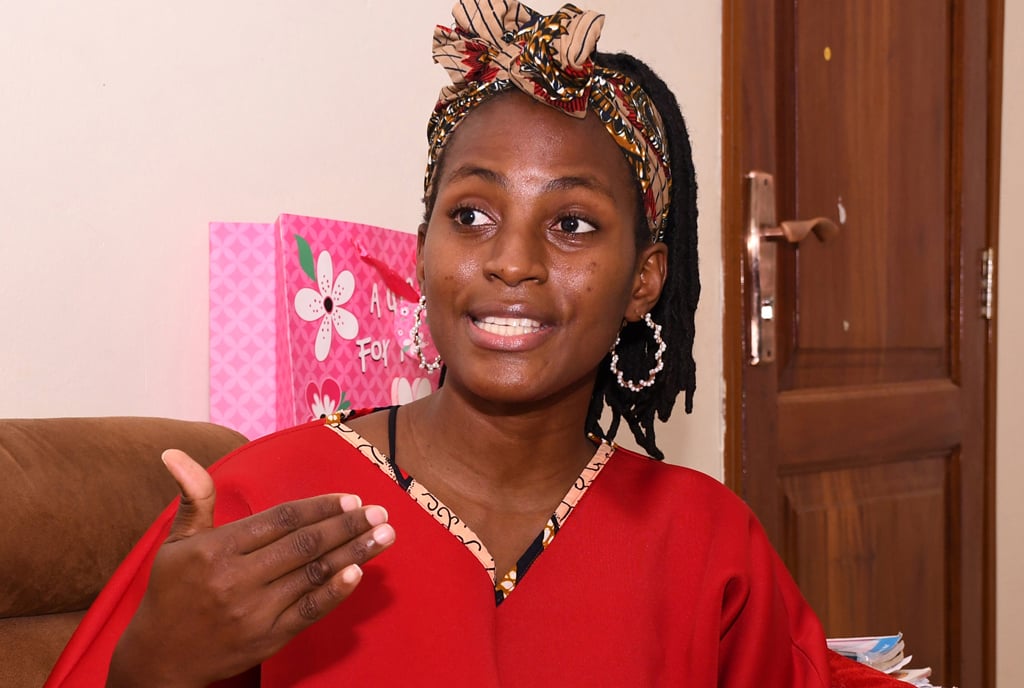Prime
Beating Covid: Our 12-year-old daughter took good care of us

Police sergeant, Mr Joseph Epilu. PHOTO/COURTESY
What you need to know:
- Unfortunately, his wife, Ms Josephine Epilu, also tested positive, while his three children were negative.
- The couple decided to isolate themselves in one bedroom to keep their children safe from the virus.
In the new series dubbed ‘Beating Covid,’ we trace victims who caught the virus and overcame it. A police sergeant talks to Damalie Mukhaye about how he and his wife overcame the deadly disease with support of their daughter.
Mr Joseph Epilu, a sergeant in the police’s Counter Terrorism Directorate, under Very Important People’s Protection Unit (VIPPU) tested positive for Covid-19 on May 24, four days after treating malaria, and not feeling any improvement.
Epilu recalls that on May 19, he started feeling weak while on duty and resorted to swallowing some Paracetamol to ease the pain but it did not help.
The next day, he went to test for malaria and the results were positive.
“I first had to go for testing to prove that I had malaria. I started on treatment,” Mr Epilu says.
Usually, a person diagnosed with malaria gets better on the third or fourth day of treatment, but Epilu said his condition worsened.
He got a headache and flu, and developed a dry cough, which prompted him to go for a Covid-19 test at Mulago National Referral Hospital.
“Doctors slapped me with Covid-19 positive results. I usually stay in the police barracks but this time, I had to go back home to my wife and children who stay in Namugongo, [a Kampala outskirt] because no one was going to take care of me in the barracks,” Epilu says.
When he reached home, he did not tell anyone about the results until three days later.
“I did not reveal the test to my wife. I just told her to cook me a nice meal, explaining that I needed to swallow some strong medicine,” Epilu says.
He was given some medication usually prescribed for Covid-19 patients with mild symptoms, which he started taking immediately.
On day three, he decided to take his entire family for Covid-19 tests because they were his contacts.
Unfortunately, his wife, Ms Josephine Epilu, tested positive, while his three children were negative.
The couple decided to isolate themselves in one bedroom to keep their children safe from the virus.
Epilu says their 12-year-old daughter, who had just sat for her Primary Leaving Examination, was able to take on the responsibilities in the house. Epilu shares more about their experience.
How did you feel when you got the results?
I expected it given the signs I experienced earlier while treating malaria. On day three of my treatment, I knew this might not be malaria because the situation was just getting worse. My next suspicion was that I had Covid-19. The results proved my suspicions right.
Where do you think you might have contracted the virus from?
I think I got it in line of my duty given the fact that I am a frontline worker. We usually make reports on a daily basis whenever we report to our stations, so I might have got it from a contaminated book or a pen. I might also have got it in a taxi because with Covid, anything is possible.
What were the symptoms you experienced?
I had an intense fever like that of malaria. I then got a headache, cough and flu in the course of treatment for malaria. This was before I tested positive for Covid-19. I also lost my sense of smell afterwards.
What were some of the most difficult moments you faced during the illness and what went through your mind at that time?
The first thing that came to my mind was that I was going to be sick and I did not know for how long. Sometimes, when you are not on duty because of sickness, you feel cheated or you are cheating the nation.
When I had malaria, I thought on the third day, I would be okay. The moment it went into the fourth day, I saw myself going to the ICU. But I knew I had to fight this enemy in my body. I knew I was going to beat it. When we became two patients, stigmatisation came in and I got worried at one point.
What kind of “treatment” did you use for the symptoms? What seemed to have worked well?
Psychological preparedness was the best treatment, and prayers. I was given Azithromycin, Vitamin C, Zinc tablets and Lactone syrup and the medication did not give me any side effects.
Unlike myself, it was not easy for my wife, who had a psychological difficulty. She was very afraid and would vomit on a daily basis.
This went on for about five days and it weakened her body. We could go for drips about thrice a day.
On the night of the sixth day, she became badly off and asked me to take her to the hospital. I called the doctors. All doctors at the Ministry of Health, Mulago, and police were good to me. They said we should wait until morning because it was not safe to travel at night. At 5am, we had to go to Mulago.
When the doctor examined my wife, he said she did not have much of the virus. The doctor advised her to stop fearing and stay positive.
When we got back home, she started eating well and in the process, she regained some energy until we healed in two weeks.
What kind of support from family and friends did you get that was helpful for your recuperation?
The closest member was my 12-year-old daughter Rita, who took care of us as if she was our parent. She would prepare anything we asked her, did all the cooking and she would put the food at a particular place.
I would pick the food and go back to our bedroom. I always told her to wash her hands after taking the used plates.
I am very proud of Rita and it makes me realise the importance of educating a girl child. She protected herself and other two siblings from getting into contact with us.
However, the problem came when people from the village started gossiping saying, ‘ that police officer and his whole family are sick’. They said they were waiting to bury the entire family. I started receiving calls about the rumours.
One of my sisters said she wanted to board a bus to Kampala. I had not told my family that we had tested positive. They learnt it from the rumours.
The family attacked me for not informing them. They accused me of wanting to ambush them with bodies. This was heart-breaking.
Did you face any stigma during your illness or even after?
There was some stigma and it is still there even after I recovered. This was both at home and at my work place. At home, parents had briefed their children not to come to our house.
They would stand at a distance while viewing us and others would cover their noses. I was okay with that but my wife was badly affected and felt she was not going to make it.
At work, I am still stigmatised against.
My former best friend no longer wants to associate with me and does not touch anything of mine. This is not good because they are also potential candidates. I do not pay attention to negative energy though.
What is your advice to those who have not got it, and those who are ill?
People should work hard and follow standard operating procedures (SOPS) from the Ministry of Health. The fight against this disease is self-discipline. Do not laugh at those who have the virus. It is not the disease that kills our patients, it is fear.
To those who are already patients, the number one weapon is being positive and knowing that they will recover from Covid-19.
I am happy our doctors have identified a way of treating it. So hope is the only way to beat this virus; follow doctors’ instructions and ensure that you do not start treatment without testing for Covid-19 because you could end up treating another disease that might harm your body.
What could you say is your biggest lesson/take-away from this experience?
Life is not straight and I am now stronger than before I got Covid-19. I look at single individual as someone who could potentially have it. I am going to use my experience to save other Ugandans out there.




